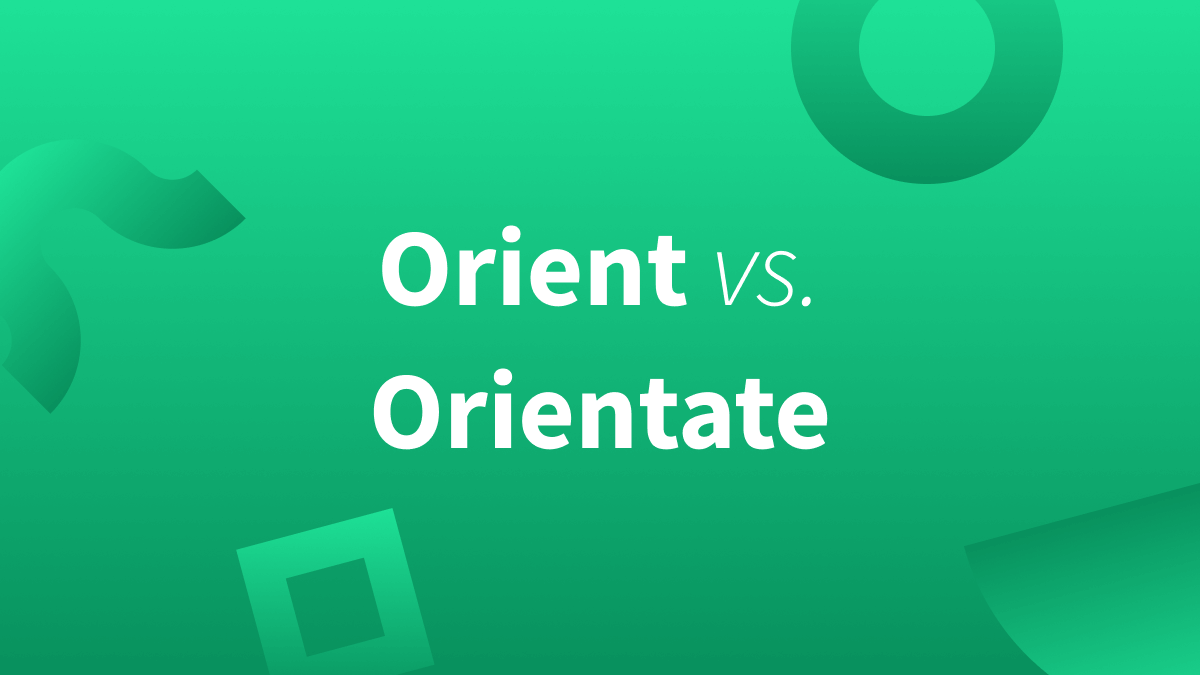- Many dictionaries consider orientate to be a real word.
- It has the same meaning as orient: “to face or turn to the east,” “to acquaint with the existing situation,” or “to direct someone or somebody towards something.”
“Orient” vs. “Orientate”
Whether you’re a native speaker or an English language learner, there’s one thing everyone should know about the English language: it is the center of numerous heated debates. Word usage, spelling conventions, and grammar rules are all susceptible to be picked apart by grammarians and novice grammar enthusiasts alike.
Using the word orientate synonymously with orient makes certain people seethe. There’s just no point for the extra syllable, they claim. So, is orientate a real word? Does it mean the same thing as orient? We’ll go over the definitions of these two words, provide examples, and tell you if you should use orient or orientate.
What Does “Orient” Mean?
Let’s begin by reviewing the word orient. It has a handful of definitions. As a verb, orient can mean “to face or point towards the east.” However, its more common definitions are “to direct someone or somebody towards something,” and “to acquaint with the situation or environment.”
The nutrition program is designed to orient people to healthier food choices.
Can you orient the desk so that it is facing the chalkboard?
The window was oriented so that the breeze could cool down the living room.
Although outdated, the word orient can also function as a noun that refers to “the countries of Asia, especially eastern Asia.”
Is “Orientate” a Real Word?
Now let’s get to the bottom of it—is orientate a real word? Yes, it is. Both Merriam-Webster and the Oxford English Dictionary define the word orientate. It is a variant of and synonymous with the word orient. Although it’s slightly younger compared to the word orient, according to Merriam-Webster, it’s been around since the 18th Century.
It is more common to find orientate being used in British English, but orient is still more popular, too.
Remember, orientate is only a real word when used as a verb. Orientate cannot take the place of the noun orient.
So, Is It “Orient” or “Orientate”?
At the end of the day, both words are acceptable, and therefore you could use either in your writing. Just be warned that orientate can seem “wrong” or unfamiliar to some audiences, especially American English readers. It’s worth noting that this word is not nearly as controversial as irregardless—a word that is considered nonstandard and will be detected by LanguageTool, an intelligent text editor. Additionally, this writing assistant will also correct all types of spelling and grammar errors and suggest stylistic improvements.

